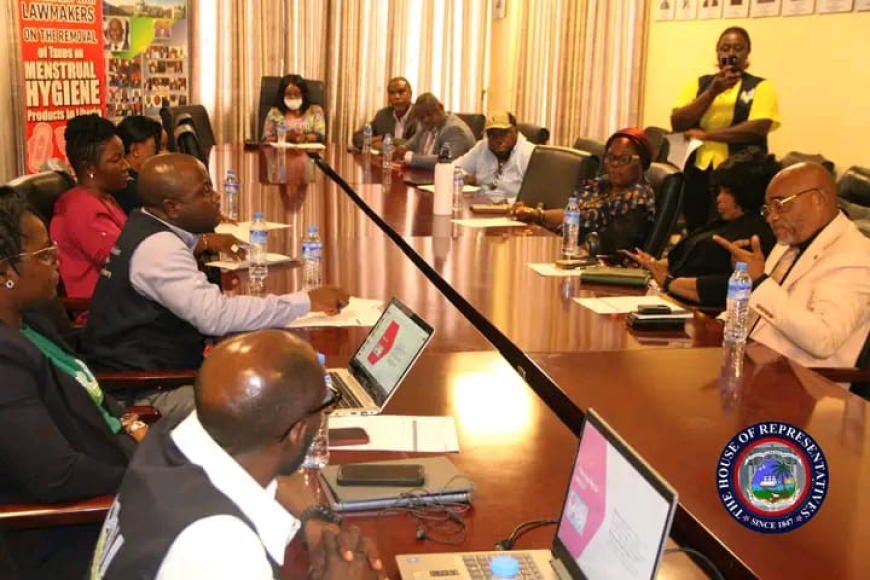The House of Representatives Health Committee is Brainstorming Ideas Regarding Tax Exemption for Menstrual Products

MONROVIA, LIBERIA: The House of Representatives’ Committee on Health has held a pivotal meeting with Public Health Initiative Liberia (PHIL) and WaterAid Liberia’s WASH Project aimed at eliminating taxes on menstrual health and hygiene products in Liberia.
The effort, health experts say, will tackle menstrual poverty and improve women’s health nationwide.
The roundtable brought together lawmakers, health advocates, and technical experts for an urgent discussion on how Liberia can remove the financial barriers that keep menstrual products out of reach for many girls and women, especially in rural and low-income communities.
PHIL Executive Director Joyce Kilipo highlighted the urgent need for change, explaining that despite menstrual products being a biological necessity for over half of Liberia’s population, these essential items are burdened with a 20% import duty and a 10% goods and services tax (GST).
“This taxation makes menstrual products unaffordable and inaccessible,” Kilipo stated, emphasizing that the current classification of these products as general goods instead of essential health commodities is a major hurdle.
Madam Kilipo shared alarming realities faced by many Liberian women who are forced to use unsafe alternatives like rags, newspapers, and leaves—practices that lead to infections, missed school days, and long-term health problems.
She wants the Legislature to remove the 20% import duty and 10% GST on menstrual products, reclassify menstrual products as essential health items, alongside rice, medicine, and agricultural inputs.
Supporting local production of affordable, eco-friendly sanitary products through incentives and technical assistance also made it to the action plan, which Madam Kilipo wants the Legislature to address.
Menstrual or period poverty affects not just health but education, gender equality, and economic productivity,” Kilipo noted, referencing UNESCO data which established that 1 in 10 girls in sub-Saharan Africa miss school during menstruation, a challenge Liberia shares.
Echoing this urgency, Lofa County District #2 Representative Julie F. Wiah, Chairperson of the House Committee on Health, welcomed the initiative.
“As lawmakers, we must ensure our policies reflect the realities faced by girls and women. We will explore amending tax laws and look to successful models like Sierra Leone’s recent legislation,” the lawmaker affirmed.
The brainstorming gathering climaxed with a unanimous agreement that menstrual health is a basic human right.
Participants pledged continued collaboration between government and civil society to push for policy reforms that will ensure equitable access to menstrual products across Liberia.
This engagement is part of a broader effort funded by Global Affairs Canada through Water Aid, underscoring Liberia’s commitment to advancing public health and gender justice.
Partners: Ministry of Health, Republic of Liberia, Water Aid West Africa, WaterAid UK
What's Your Reaction?








































































